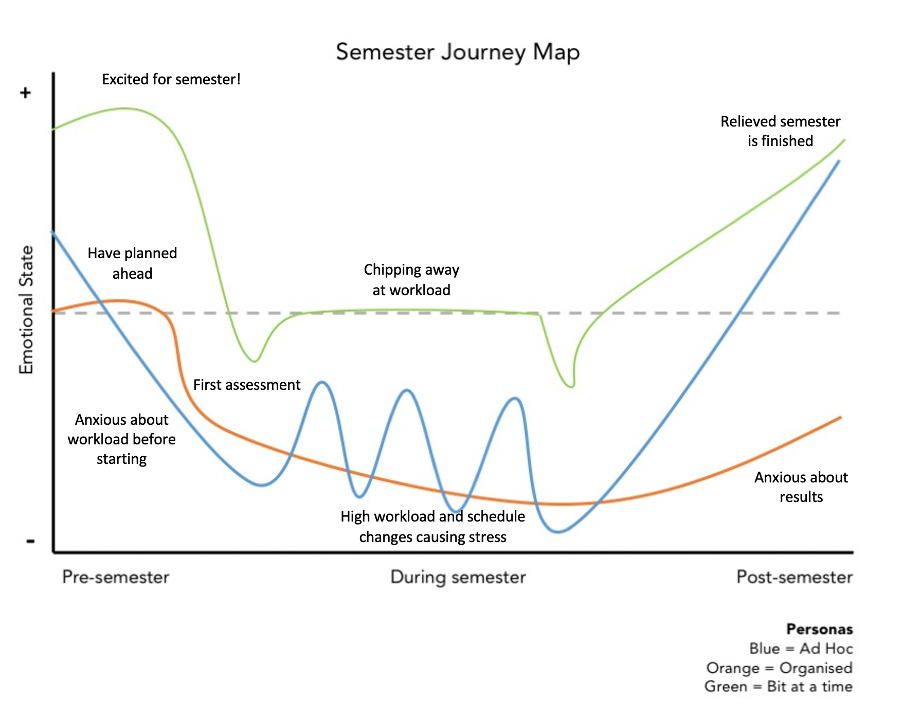It’s no secret that postgraduate study is challenging for all students – particularly for new students, who may find themselves unprepared for the demands that returning to study requires: academic skills, balancing work, study and family and maintaining wellbeing.
To help students with these demands, Gail Forrest, Rochelle Firth and Katie Tunks-Leach from the Health Faculty worked with the Postgraduate Learning Design team to develop a course that all postgraduate students enrolled in Canvas can access before they begin their studies.
The design process
This is how we approached the course design:
- We conducted a focus group with existing students to understand the student journey, their perspective on challenges and how to cope.
- We mapped out the course by interpreting the results from the focus group and addressed this in our learning design sequence.
- We built the course incorporating the student voice, stories for inspiration, practical activities and opportunities for students to reflect on their own situation.
Focus group insights
In this video, the focus group discuss the surprises of returning to postgraduate studies and tips for future students.
From this, we identified three student personas.
Persona 1: Overly organised
The organised student plans their uni and work schedules as soon as the information becomes available. They keep and refer to a calendar of their shifts, classes, appointments and allocated study time. When circumstances deviate from what’s planned, they often panic, which is their key source of stress.
Persona 2: A bit at a time
The student who chips away at things is a balance of the two other personas, who generally is more resilient, and copes better with stress. This student plans ahead, but knows plans change and can adjust and rebalance their schedule and workplace as complications arise. This student manages their time and works at organised intervals to complete tasks by the due date.
Persona 3: Ad Hoc
The Ad Hoc student leaves things to the last minute and generally doesn’t plan ahead. They might plan out their work and uni schedule to a degree but don’t leave adequate time for cumbersome tasks. They often struggle when multiple tasks are due at once because their work and tasks aren’t adequately balanced. This unplanned overload is their key source of stress.

Students were asked to map their emotional states during a session – this was then represented in terms of their persona.
Key points to consider
Often as educators we can lose touch with the student experience and make inaccurate assumptions about what they find challenging. This is what we discovered:
- Students seem to understand the concept of balance, but often struggle to achieve it because of unforeseeable changes and unrealistic expectations of the time needed for study.
- Students plan their schedules 3 months ahead, according to their session timetable. Any date changes caused disruption and stress as students needed to rearrange work shifts and study times, which detracted from social or de-stress days.
- Students had an unrealistic expectation of being able to make time for everything, without sacrificing something. Often they felt guilty for neglecting uni work when they were short of time or felt guilty for neglecting work when they studied more.
- The first assignment is a point of realisation for students that their allocated study time is not enough. This realisation triggers stress about the management and allocation of study time.
- Students look for support in people who have shared their experience. They primarily spoke to other students, family, work and university staff.
- Students expressed how missing social occasions with family and friends often led to them feeling socially isolated, guilty and stressed.
Understanding these key factors when designing teaching and learning sequences will ensure a great learning experience for students that leads to a great teaching experience! The insights gleaned from the focus group were invaluable; in part 2 of this blog, we look at what was developed in response to this.
